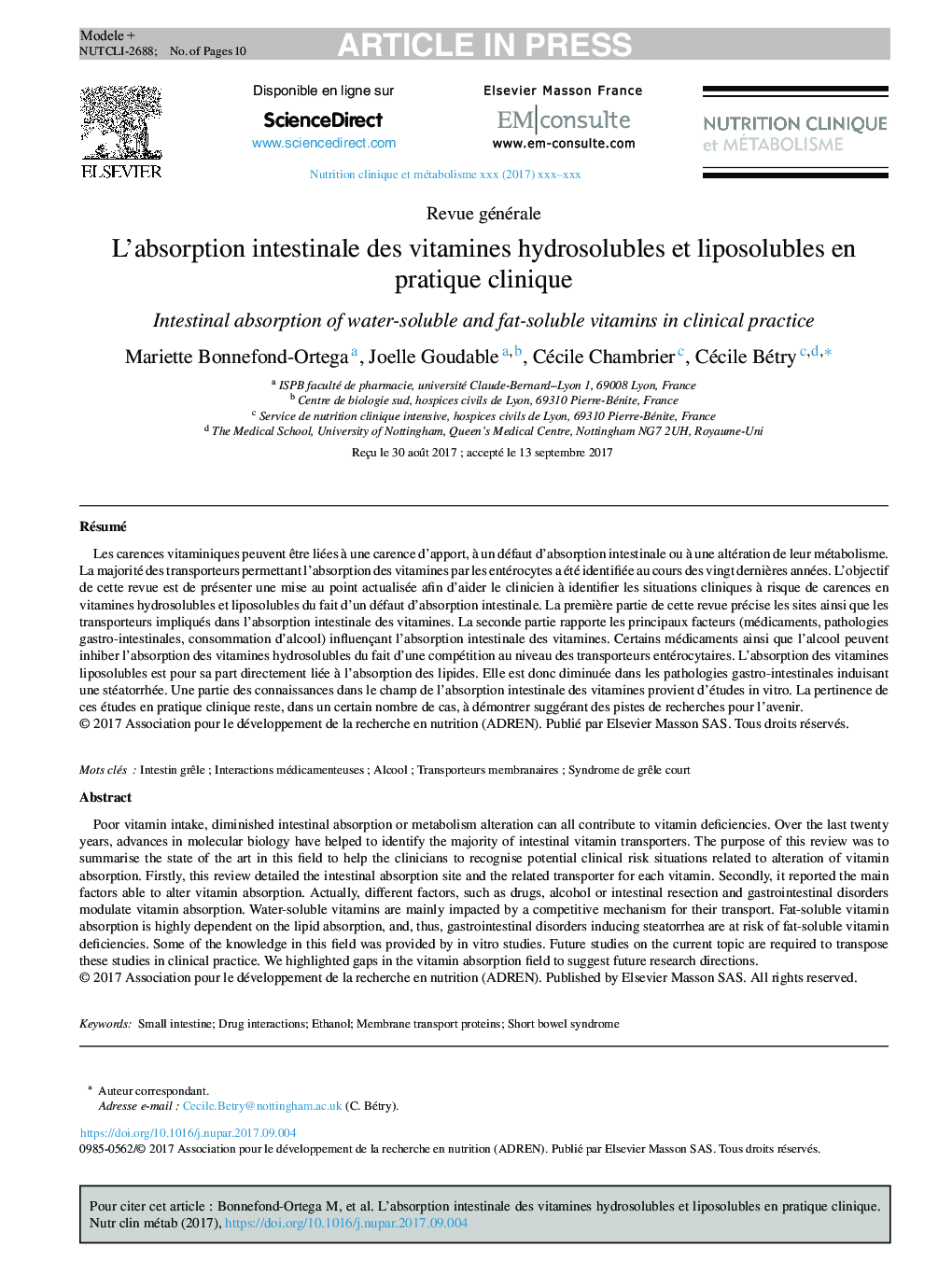| Article ID | Journal | Published Year | Pages | File Type |
|---|---|---|---|---|
| 8589325 | Nutrition Clinique et Métabolisme | 2018 | 10 Pages |
Abstract
Poor vitamin intake, diminished intestinal absorption or metabolism alteration can all contribute to vitamin deficiencies. Over the last twenty years, advances in molecular biology have helped to identify the majority of intestinal vitamin transporters. The purpose of this review was to summarise the state of the art in this field to help the clinicians to recognise potential clinical risk situations related to alteration of vitamin absorption. Firstly, this review detailed the intestinal absorption site and the related transporter for each vitamin. Secondly, it reported the main factors able to alter vitamin absorption. Actually, different factors, such as drugs, alcohol or intestinal resection and gastrointestinal disorders modulate vitamin absorption. Water-soluble vitamins are mainly impacted by a competitive mechanism for their transport. Fat-soluble vitamin absorption is highly dependent on the lipid absorption, and, thus, gastrointestinal disorders inducing steatorrhea are at risk of fat-soluble vitamin deficiencies. Some of the knowledge in this field was provided by in vitro studies. Future studies on the current topic are required to transpose these studies in clinical practice. We highlighted gaps in the vitamin absorption field to suggest future research directions.
Keywords
Related Topics
Health Sciences
Medicine and Dentistry
Gastroenterology
Authors
Mariette Bonnefond-Ortega, Joelle Goudable, Cécile Chambrier, Cécile Bétry,
